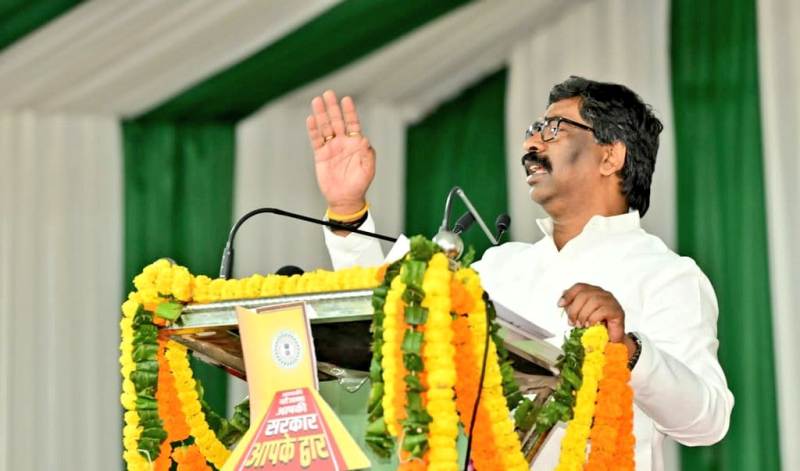 Hemant Soren
Hemant Soren
As Hemant Soren faces ED, Jharkhand prepares for two huge reforms
Raipur/ IBNS: As Jharkhand Chief Minister Hemant Soren finds himself facing the Enforcement Directorate, his party is targeting a political fightback with the execution of two of its main promises made during the 2019 state election.
In a special session on Friday, the Jharkhand Assembly is expected to clear two landmark bills-one to use land records from 1932 to determine those who are local inhabitants and another to increase the reservation in jobs and education for Other Backward Classes or OBC from 14 to 27 per cent.
The laws are seen to be politically sensitive and popular.
The bills are unlikely to be opposed even though changes could be made to the policy of domicile records.
To further corner the Bharatiya Janata Party (BJP), which has been accused of using central agencies like the Enforcement Directorate to target opponents, the state government has already made it official that, once cleared by the governor, it will be up to a move by the centre to ensure the new quota system is not struck down by courts.
Under the new reservation policy, the OBC quota will not only be hiked to 27 per cent from 14 but the quota for Scheduled Tribes will be increased to 28 per cent from 26 and that for Scheduled Castes will be raised to 12 per cent from 10.
Added to the 10 per cent reservation for a section of the so-called "upper castes" deemed as the Economically Weaker Section (EWS), which was upheld by the Supreme Court this week, the total reservation will rise to 77 per cent - among the highest in the country.
The domicile records policy, on the other hand, has been a key demand of the state's tribal population - who say that the last land survey conducted by the British government in 1932 be used as the basis for defining locals - and was cleared by the Jharkhand government in September.
Once the bill becomes law, people whose ancestors were living in the state before 1932 and whose names were included in that year's land records will be considered local residents of Jharkhand.
Support Our Journalism
We cannot do without you.. your contribution supports unbiased journalism
IBNS is not driven by any ism- not wokeism, not racism, not skewed secularism, not hyper right-wing or left liberal ideals, nor by any hardline religious beliefs or hyper nationalism. We want to serve you good old objective news, as they are. We do not judge or preach. We let people decide for themselves. We only try to present factual and well-sourced news.






